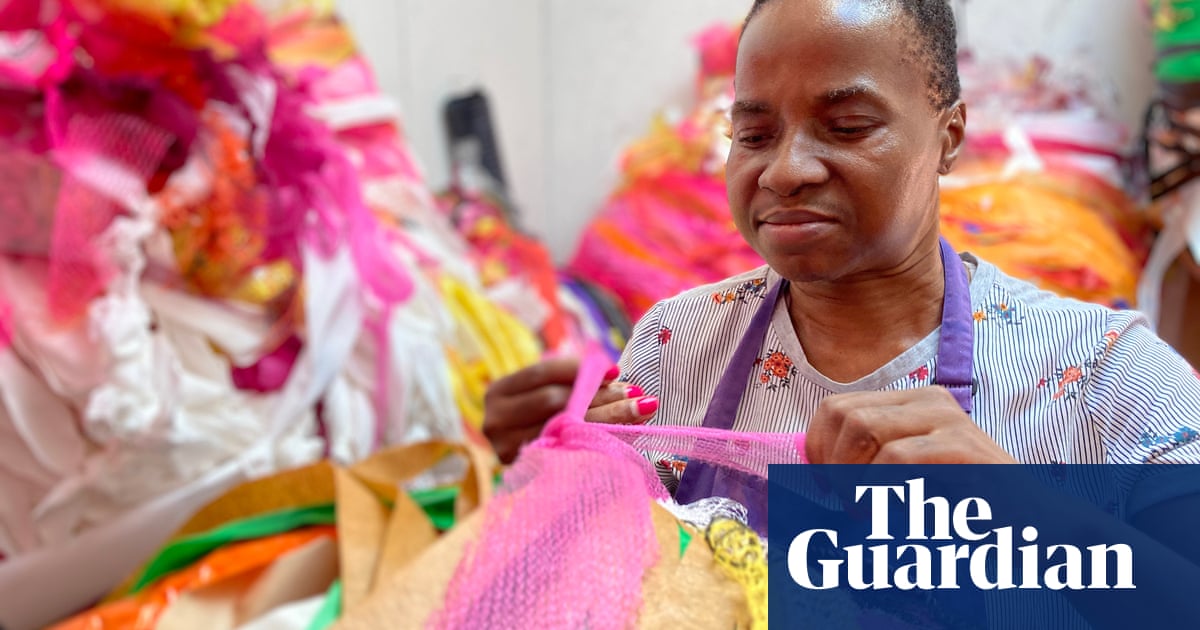Nearly half of birch wood certified by leading sustainability schemes is misidentified and does not come from the labelled country of origin, according to new testing. The analysis raises fears that large quantities of sanctioned wood from Russia and Belarus are still illegally entering Britain.
New research by World Forest ID, a consortium of research organisations that includes Kew Gardens and the World Resources Institute, scrutinised the accuracy of dozens of harvesting-origin claims on birch products, which had almost entirely been approved by the Forest Stewardship Council (FSC) and Programme for the Endorsement of Forest Certification (PEFC) sustainability schemes.
The samples of birch – a popular hardwood used in furniture, kitchens panels and musical instruments – were labelled as originating in Ukraine, Poland, Estonia and Latvia. But tests using the wood’s “chemical fingerprint” showed that 46% of certified samples did not come from the origin on the label.
The birch tree is commercially grown and processed across much of northern Europe, including large parts of Russia and Belarus. After Russia’s invasion of Ukraine, it became illegal to import Russian and Belarusian plywood and timber products into Britain and other European countries due to sanctions.
While the tests did not specify the country where the wood was grown, experts said Russia and Belarus were the only plausible origins.
“Where else could it be from?” said David Hopkins, chief executive of Timber Development UK, the industry’s trade association, reacting to the analysis.

“There’s a small number of companies that produce this stuff legally,” he said. “The birch trees that are in Finland are being taken up by a small number of sawmills producing birch plywood.
“There’s pockets of it elsewhere in the Baltics and Scandinavia. But the bulk of it is going to be from Russia, putting money through the Russian economy and breaching sanctions while you are doing it,” Hopkins said.
Certification questions
The FSC and the PEFC are the world’s most commonly used timber certification schemes, intended to promote the sustainable management of woodland and prevent deforestation.
Following Russia’s invasion of Ukraine, the FSC suspended its certification for timber from Russian and Belarus, and blocked all controlled wood from the two countries. PEFC decided to classify timber from both countries as “conflict timber”, meaning they could no longer use its certification.
But the new World Forest ID analysis – which was partly funded by the FSC – found that of 52 samples with a FSC or PEFC certification, 24 had an incorrect harvest claim. While tests were conducted on a relatively small number of samples, the report authors said their findings indicated that existing oversight was not sufficient to guarantee accurate claims.
To test the wood, researchers used stable isotope ratio analysis, comparing the chemical makeup of the birch samples with a reference database from across northern and eastern Europe. Scientists used markers caused by differences in light, soil and water conditions to estimate the geographic origin.

Jade Saunders, executive director of World Forest ID, said: “The UK has been a leader in sanctions and trade laws and certification schemes but they are only as good as the tools with which they are implemented.
“Chemical traceability is a whole new way of thinking about what is really in our supply chains. We know we can only solve problems if we can see them, and in this study we saw them very clearly, so it is time for the government and guardians of supply-chain integrity to step up and start solving.”
The FSC said it took any indication of potential fraud seriously and welcomed the World Forest ID research, adding that it was actively investing in new techniques to ensure reliability in supply chains. It said it had no access to the names of the companies that had provided samples confidentially.
The PEFC said the findings needed to be placed in context and that only 14% of the samples were associated with their certification. It said generalisations about the overall effectiveness of their sustainability schemes should not be made from the analysis.
after newsletter promotion
The certification schemes are the primary way that companies source sustainable wood, avoiding contributing to the destruction of rainforests and other biodiverse environments. The report raises questions about whether current certification systems are reliable.
Leaky sanctions
After Russia’s attack on Ukraine in 2022, recorded exports of Russian birch to European countries including the UK decreased dramatically. But in the months that followed, trade data shows that exports from other countries including Kazakhstan and Turkey rose significantly.
In the case of Kazakhstan, exports of plywood leapt from 600 tonnes in 2021, to 25,600 tonnes in 2022, according to UN trade statistics.

In January, the environmental organisation Earthsight published an investigation into birch-wood laundering, finding that a network of organisations had found a way to avoid European sanctions, with 20 container-loads of wood continuing to arrive every day. The Russian military and oligarchs close to Vladimir Putin profit directly from the sale of the timber, according to the report.
Sam Lawson, founding director of Earthsight and one of the report’s authors, said: “Timber is a big export for Russia; it was a big revenue earner prior to the conflict that is less well known than gas and oil.
“The EU and UK have banned all imports of Russian and Belarusian wood, including products made with them. Our investigation found that those sanctions are being flouted on a massive scale.
“We concluded that over €1.5bn [£1.3bn] worth of illegal sanctions – blood timber, basically – has entered Europe since the sanctions took effect in 2022. A lot of the birch plywood that people were using in their kitchens, and for trendy furniture and stuff, prior to the conflict was being imported from Russia or Belarus. That wood is still managing to get to Europe,” he said.
A UK government spokesperson said that timber entering the UK must be legal and sustainable.
“That’s why this Government is going further by strengthening certification schemes so any breaches of the law are cracked down on,” they said.

.png) 5 hours ago
2
5 hours ago
2













































